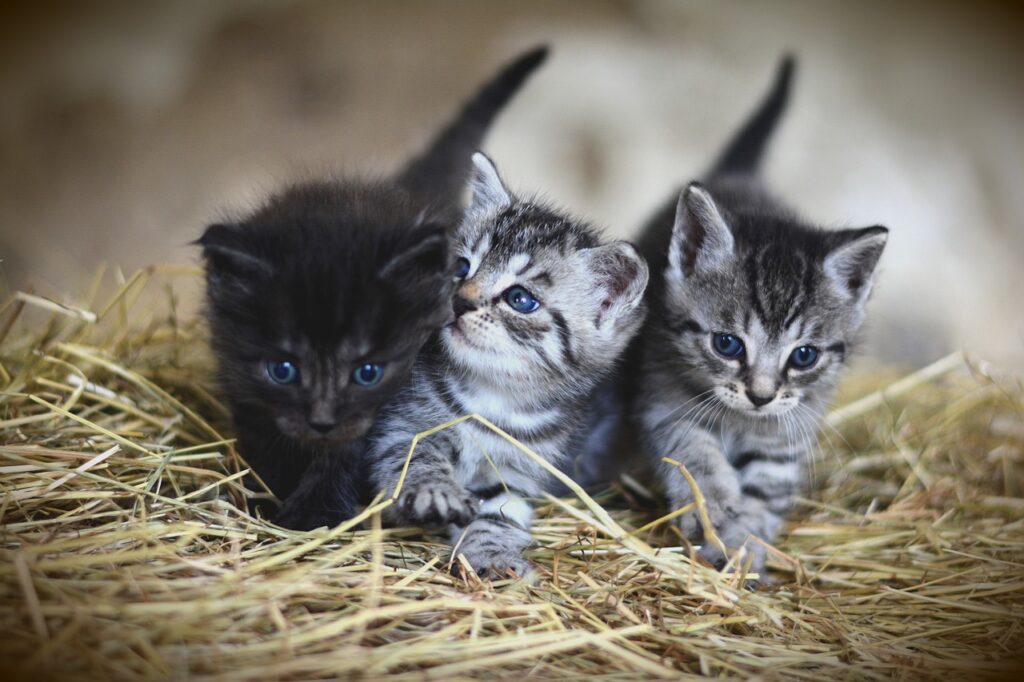Can Cats Eat Tomatoes? – No, They Can’t
While tomatoes are a staple in many human diets, they are a big no for our feline friends. Often we might think what’s good for us is good for our pets, but this isn’t the case with tomatoes. As tempting as it might be to share your tomato-based dish with your cat, it’s best to resist. Tomatoes contain solanine, a substance that can be toxic for cats if ingested in large quantities. Although ripe tomatoes have less of this substance, it’s always better to stay on the safe side and avoid giving tomatoes to cats altogether.
Is It Safe for Kittens to Consume Tomatoes?
When it comes to kittens, their bodies are even more sensitive than those of adult cats. So, the straightforward answer is no, kittens should not consume tomatoes. Their digestive systems are not fully developed, and exposing them to the solanine in tomatoes could lead to more adverse reactions than in adult cats.
Risks Associated with Feeding Tomatoes to Kittens
Kittens, being the curious creatures they are, might find themselves nibbling on a piece of tomato. However, ingestion can pose risks such as gastrointestinal upset. Moreover, their liver and kidneys are more susceptible to the toxins present in tomatoes, which could potentially lead to solanine poisoning – a situation that any pet owner would want to avoid.
Why Tomatoes are Not Recommended for Cats
Inherent Toxicity
The inherent toxicity found in tomatoes stems from solanine and tomatine, which are found more concentrated in the stems, leaves, and unripe fruit of the tomato plant. Ingesting these parts can lead to solanine poisoning in cats, accompanied by gastrointestinal distress, lethargy, weakness, and even confusion. Ripe tomatoes have less solanine but still pose a risk, particularly if consumed in large amounts.
Potent Allergens
Some cats can develop an allergic reaction to tomatoes. The symptoms might include skin rashes, itching, or gastrointestinal problems, which can cause discomfort and distress to your pet. It’s best to avoid the risk by steering clear of feeding tomatoes to your cat.
Unnecessary Dietary Addition
Cats are obligate carnivores, meaning their diets need to be rich in proteins from animal sources. Vegetables like tomatoes offer no nutritional benefit to support their dietary needs. Instead of beneficial nutrients, tomatoes introduce the risk of toxins and potential allergens, which cats’ bodies are simply not meant to handle.
Known Health Issues in Cats from Consuming Tomatoes
Cats that eat tomatoes can suffer from various health issues. The symptoms to watch out for include gastrointestinal issues such as vomiting, diarrhea, decreased appetite, and abdominal pain. In more severe cases, neurological symptoms like tremors, seizures, or respiratory problems may occur if solanine toxicity develops. It’s critical to monitor your pet closely and seek veterinary care if any adverse reactions are observed.
What to Do If a Cat Has Consumed Tomatoes?
- Contact Your Veterinarian: If you suspect your cat has eaten tomatoes, especially in large amounts or the green parts of the plant, contacting a vet should be your first step.
- Monitor for Symptoms: Keep a close eye on your cat for any signs of distress or illness. If symptoms manifest, inform your vet right away.
- Prevent Further Access: Ensure that your cat can no longer get to any part of the tomato plant or foods containing tomato ingredients.
Safe Alternatives to Tomatoes for Cats
For a cat-safe treat, consider offering small pieces of cooked meats like chicken or turkey. Additionally, there are many commercially available cat treats that are specifically designed to be both safe and appealing to your cat. Always opt for foods and treats that are meant for feline consumption to prevent any unnecessary health risks.
Conclusion
Ultimately, tomatoes and cats don’t mix. Despite the occasional image of cats curiously sniffing at a tomato, it’s clear that feeding tomatoes to cats can pose unnecessary risks. Stick to a diet that’s formulated for cats—a diet that supports their carnivorous needs and sustains their health and vitality, without the presence of potential toxins found in some human foods, like tomatoes. Your cat’s health and happiness depend on the care and knowledge you put into their diet, so make safe and informed choices when it comes to their food.



